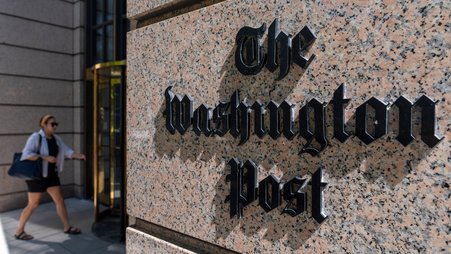Awarding-winning filmmaker and journalist Laura Poitras sued the Department of Homeland Security and several other federal agencies under the Freedom of Information Act (FOIA) yesterday, demanding an explanation for the dozens of times the US government detained and questioned her traveling over the border from 2006-2012.
Poitras, who is also a founding board member of Freedom of the Press Foundation, remarked that she is in part filing this suit “in support of the countless other less high-profile people who have also been subjected to years of Kafkaesque harassment at the borders. We have a right to know how this system works and why we are targeted.” She brings up a critical point: the lack of rights for journalists (and everyone) at the border has become a vital press freedom issue, and we hope this lawsuit shines a light on the government’s shameful policies that they have been attempting to keep secret.
By now, Laura’s story is more well-known than most: after being nominated for an Academy Award in 2006 for her film My Country, My Country about the US occupation in Iraq, she was mysteriously put on a US government watch list and was detained going over the US border over 40 times. It didn’t stop until Glenn Greenwald wrote an article about it at Salon in 2012, exposing the issue.
With the help of EFF senior counsel and FOIA expert David Sobel, she has been patiently filing FOIA requests with five federal agencies for well over a year in an attempt to find out why she was targeted for such intense surveillance and scrutiny. All of the agencies either ignored or stonewalled her requests, and after exhausting all their administrative appeals, EFF sued the agencies yesterday.
While Poitras’s case is particularly egregious, this problem is unfortunately all too common. Journalists of all stripes have been increasingly stopped going over the US border in the past several years.They’ve been detained for hours, questioned, had their electronics confiscated a searched, and are never told why.
The National Press Photographers Association has sued over the government’s practices at the border, the New York Times has the government’s expansive border authorities a “back door” to search devices without following the Constitution, and the Committee to Protect Journalists have called the US’s border policies “absurd.”
Some journalists, like New York Times reporters Mac William Bishop and C.J. Chivers, seem to have been stopped because of where they are going and what they are covering. The Times sued under FOIA for more information in their case as well, and so far the government hasn’t budged.
Others, like Vice’s Ahmed Shihab-Eldin or journalist Sarah Abdurrahman, who produced a riveting and disturbing segment on the subject last year for On the Media, have simply been targeted because of their religion or the color of their skin. (On the Media built a great call-in tool to contact your representatives about the issue.)
Multiple members or volunteers of WikiLeaks have been detained at the border and had their devices confiscated over the past several years despite never being charged with or committing a crime.
And these are just the cases that are public. We know of multiple people who work in the journalism field that have gone through similar situations, who are too worried about coming forward for fear of making it worse.
It’s time the US government stopped searching journalists at the border and it’s time they came clean with the public about what their policies are, why they stop individuals, and what people can do to stop it.




